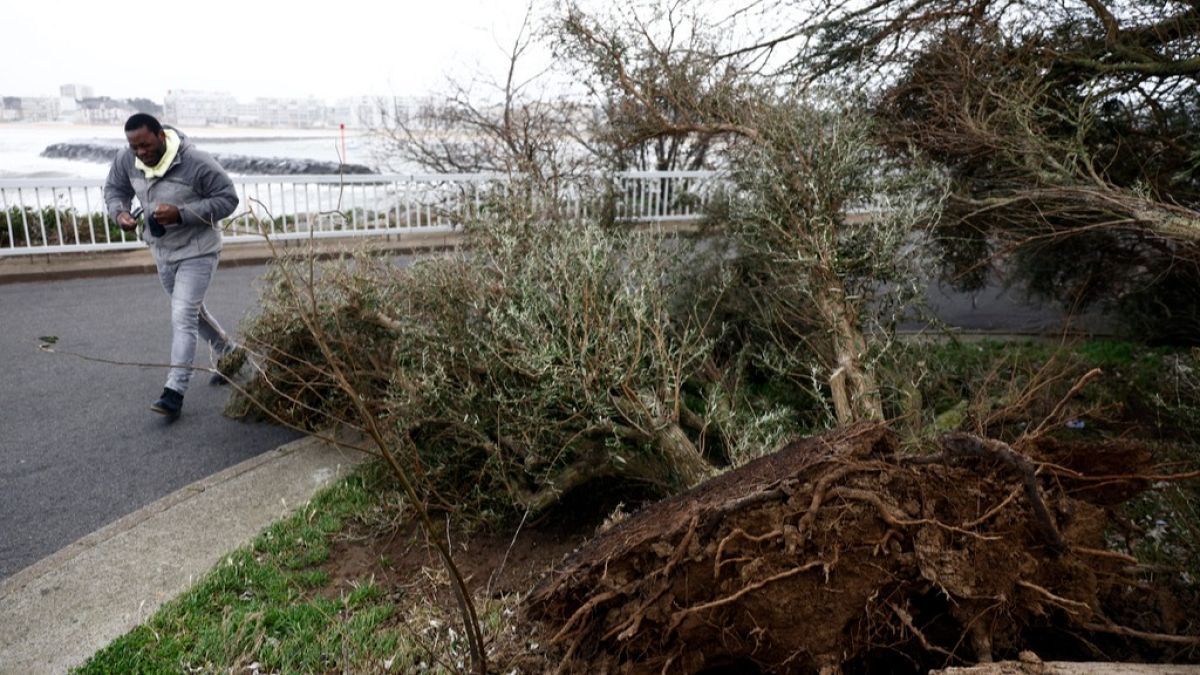

In recent days, a series of climatic events and policies have underscored the intricate relationship between nature and human societies, highlighting both the challenges and the strategies being employed to mitigate these impacts. This article explores significant occurrences around the world, including devastating storms in France, climate-induced migration from Tuvalu, and environmental policy changes in the European Union. Through a mindful lens, we examine these events and their broader implications.
A powerful storm recently swept across France, tragically resulting in two deaths and causing considerable disruption. The intensity of the storm was evident as it led to the flooding of streets and even caused a leak in the roof of the French National Assembly. Such incidents remind us of the unpredictability of nature and the importance of readiness in the face of natural calamities. As communities begin to recover, efforts are underway to address the immediate impacts and to strengthen future resilience. Community leaders and emergency services continue to play a pivotal role, supporting those affected and ensuring swift recovery efforts.
Meanwhile, in the Pacific, the island nation of Tuvalu is facing an existential threat due to rising sea levels, prompting an unprecedented migration initiative. Nearly one-third of Tuvalu’s population has entered a ballot for a climate-linked visa, an innovative response by Australia to support populations affected by climate change. Each year, 280 Tuvaluans will have the opportunity to relocate to Australia under this world-first agreement. This initiative represents a compassionate and forward-thinking approach to climate migration, offering hope and a new beginning for those whose homeland is increasingly under threat.
Across the European continent, environmental policies are undergoing significant shifts. Observers have noted a rapid pace of deregulation within the European Union, particularly concerning the European Green Deal. Advocacy groups express concern over the dismantling of environmental protections, which they see as pivotal to combatting climate change and preserving biodiversity. This shift coincides with a broader political transition within the EU, marked by a swing towards economic competitiveness. The balancing act between immediate economic interests and long-term sustainability is crucial—not only for Europe but for the global community striving toward climate goals.
These stories, while distinct, collectively highlight the multifaceted nature of our global climate narrative. From responding to immediate natural disasters and facilitating humanitarian responses, to navigating complex policy landscapes, the journey to a balanced and sustainable future demands both urgency and mindful consideration. It is a role for governments, communities, and individuals alike, as we seek to preserve our natural world while fostering thriving human societies.
In conclusion, as we face these environmental challenges, a spirit of resilience coupled with innovative solutions and collaborations emerges as vital. Only through such concerted efforts can we hope to harmonize human activity with the Earth’s natural rhythms, securing a stable and hopeful future for generations to come.
Source: {link}
